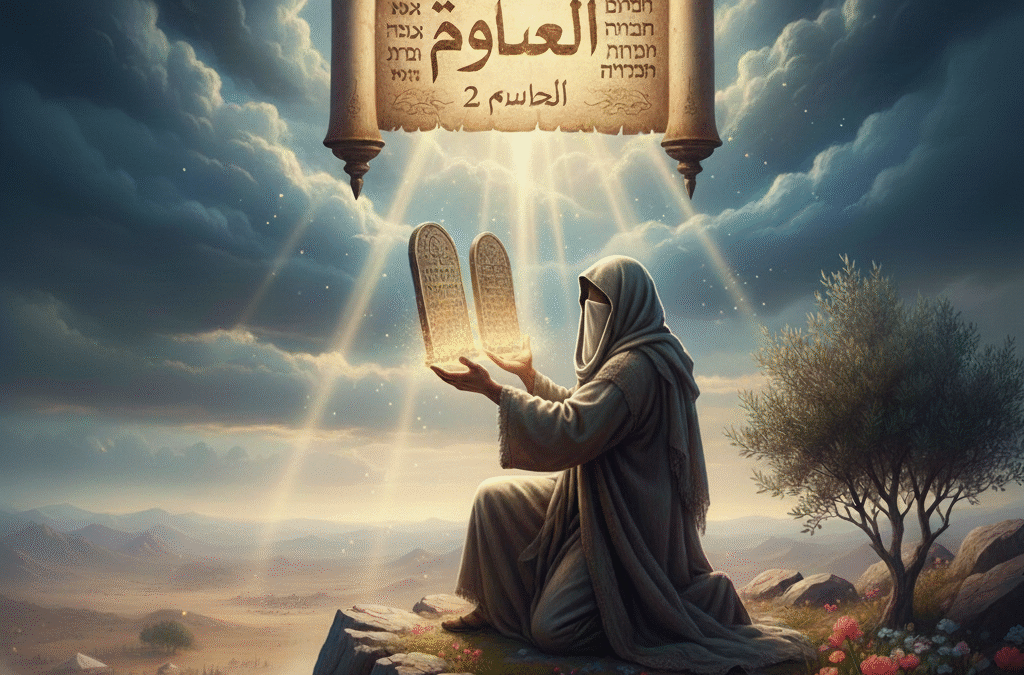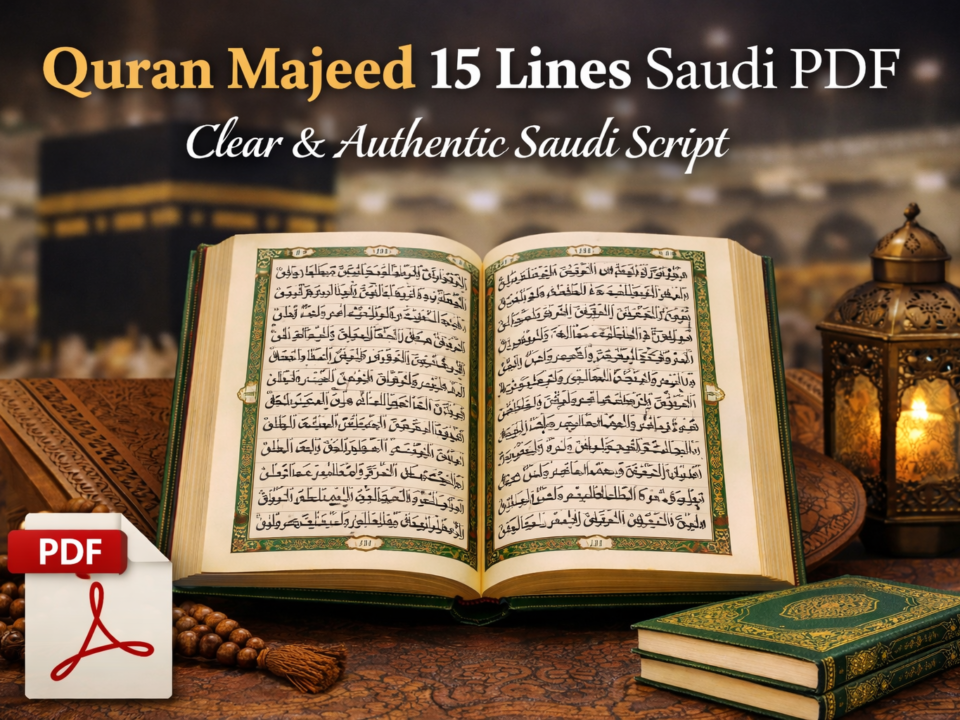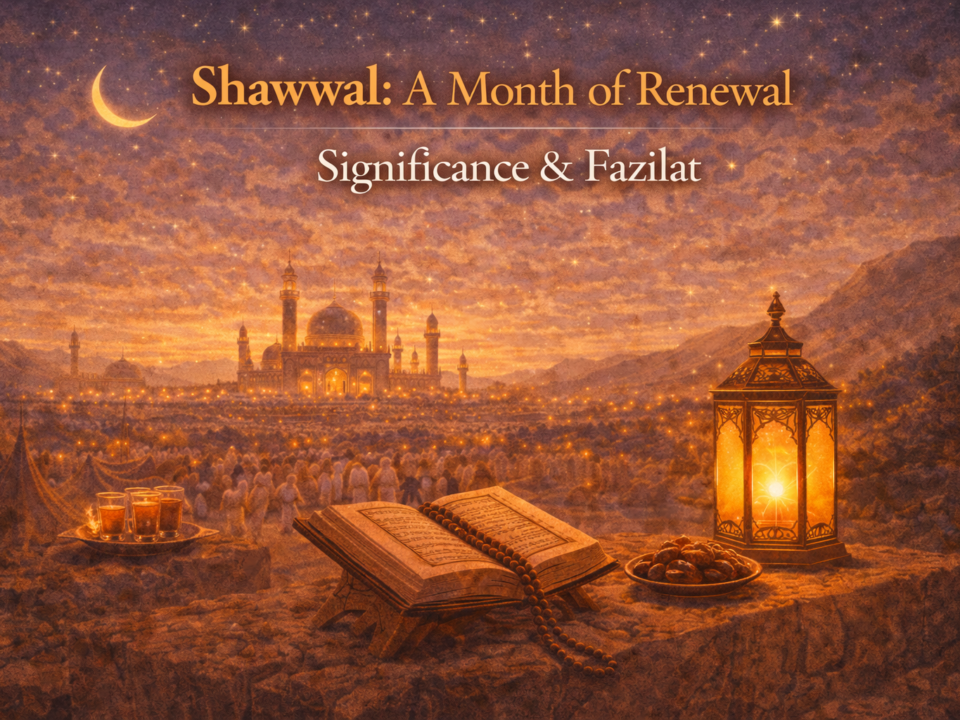The Revelation of the Torah to Musa (AS) on the 2nd of Ramadan
The 2nd of Ramadan is a significant date in Islamic history as it marks the day when Allah SWT revealed the Torah to the Prophet Musa (AS), known as Moses in Abrahamic traditions. This divine revelation is a momentous event, as it represents a key part of the prophetic journey and the transmission of divine guidance to humankind. In this blog post, we will explore the historical context, significance, and lessons from the revelation of the Torah to Prophet Musa (AS) on the 2nd of Ramadan.
The Historical Context
The story of the revelation of the Torah to Prophet Musa (AS) is a central narrative in both Islamic and Judeo-Christian traditions. According to Islamic tradition, the Torah is one of the divine scriptures, and Musa (AS) is regarded as one of the prominent prophets and messengers.
Read More: Influencers aur Role Models – Islam Humein Kaisa Role Model Dikhata Hai
Key Aspects of the Revelation:
- The Divine Conversation:The revelation of the Torah is associated with the event when Musa (AS) received Allah’s command to climb Mount Sinai, where Allah would speak to him directly.
- Mount Sinai:Musa (AS) ascended Mount Sinai as commanded, and it was there that Allah spoke to him and revealed the Torah, a sacred book containing divine guidance and laws for the Children of Israel.
- The Ten Commandments:One of the most renowned portions of the Torah is the Ten Commandments, a set of ethical and moral principles that serve as a foundation for religious and moral conduct.
- Guidance for Humanity:The Torah provided guidance not only to the Children of Israel but also contained principles and values that hold universal significance for all of humanity.
Significance and Lessons
The revelation of the Torah to Prophet Musa (AS) on the 2nd of Ramadan carries several significant lessons and principles that continue to resonate today:
- Divine Guidance:The revelation of the Torah underscores the importance of divine guidance in human affairs. It serves as a reminder that Allah SWT provides guidance to humanity through chosen prophets and scriptures.
- Moral and Ethical Principles:The Ten Commandments within the Torah emphasize moral and ethical principles that form the foundation of a just and virtuous society. These principles include worshiping the One God, honoring parents, and refraining from actions such as murder, theft, and falsehood.
- Universal Values:While the Torah was revealed to a specific community, its principles and values have universal applicability. The emphasis on justice, compassion, and ethical conduct transcends religious boundaries.
- Prophetic Tradition:The story of Musa (AS) and the revelation of the Torah highlight the rich prophetic tradition within Islam, connecting the faith to the broader Abrahamic lineage.
- Seeking Knowledge:The commitment of Musa (AS) to ascend Mount Sinai and receive divine knowledge serves as a reminder of the importance of seeking knowledge and divine wisdom.
Conclusion
The revelation of the Torah to Prophet Musa (AS) on the 2nd of Ramadan is a momentous event in Islamic history, signifying divine guidance, moral principles, and universal values. It underscores the importance of seeking knowledge, following divine guidance, and upholding ethical and moral conduct. As Muslims commemorate this event, it is an opportunity to reflect on the enduring relevance of these principles and their role in shaping a just and virtuous society. The revelation of the Torah to Musa (AS) serves as a timeless reminder of the divine wisdom and guidance that continues to illuminate the path of believers.
عنوان: 2 رمضان المبارک کو موسیٰ علیہ السلام پر تورات کا نزول
تعارف
2 رمضان المبارک اسلامی تاریخ میں ایک اہم تاریخ ہے کیونکہ یہ اس دن کی نشاندہی کرتا ہے جب اللہ تعالیٰ نے حضرت موسیٰ (ع) پر تورات نازل کی تھی، جسے ابراہیمی روایات میں موسیٰ کے نام سے جانا جاتا ہے۔ یہ الہی وحی ایک اہم واقعہ ہے، کیونکہ یہ پیشن گوئی کے سفر اور بنی نوع انسان تک الہی رہنمائی کی منتقلی کا ایک اہم حصہ ہے۔ اس بلاگ پوسٹ میں، ہم 2 رمضان المبارک کو حضرت موسیٰ (ع) پر تورات کے نزول کے تاریخی تناظر، اہمیت اور اسباق کا جائزہ لیں گے۔
تاریخی سیاق و سباق
حضرت موسیٰ (ع) پر تورات کے نزول کی کہانی اسلامی اور یہودی عیسائی دونوں روایات میں مرکزی داستان ہے۔ اسلامی روایت کے مطابق تورات آسمانی صحیفوں میں سے ایک ہے اور موسیٰ (ع) کا شمار ممتاز انبیاء اور رسولوں میں ہوتا ہے۔
وحی کے اہم پہلو:
الٰہی گفتگو: تورات کے نزول کا تعلق اس واقعہ سے ہے جب موسیٰ (ع) کو کوہ سینا پر چڑھنے کا اللہ کا حکم ملا جہاں اللہ تعالیٰ ان سے براہ راست بات کرے گا۔
کوہ سینا: موسیٰ (ع) حکم کے مطابق کوہ سینا پر چڑھے، اور یہیں پر اللہ تعالیٰ نے ان سے بات کی اور تورات نازل کی، جو کہ بنی اسرائیل کے لیے آسمانی ہدایت اور قوانین پر مشتمل ایک مقدس کتاب ہے۔
دس احکام: تورات کے سب سے مشہور حصوں میں سے ایک دس احکام ہیں، اخلاقی اور اخلاقی اصولوں کا ایک مجموعہ جو مذہبی اور اخلاقی طرز عمل کی بنیاد کے طور پر کام کرتے ہیں۔
انسانیت کے لیے رہنمائی: تورات نے نہ صرف بنی اسرائیل کے لیے رہنمائی فراہم کی بلکہ اس میں ایسے اصول اور اقدار بھی ہیں جو پوری انسانیت کے لیے عالمگیر اہمیت رکھتے ہیں۔
اہمیت اور اسباق
2 رمضان المبارک کو حضرت موسیٰ (ع) پر تورات کا نزول کئی اہم اسباق اور اصولوں پر مشتمل ہے جو آج بھی گونج رہے ہیں:
الٰہی رہنمائی: تورات کا نزول انسانی معاملات میں الٰہی رہنمائی کی اہمیت کو واضح کرتا ہے۔ یہ ایک یاد دہانی کے طور پر کام کرتا ہے کہ اللہ SWT منتخب انبیاء اور صحیفوں کے ذریعے انسانیت کو رہنمائی فراہم کرتا ہے۔
اخلاقی اور اخلاقی اصول: تورات کے اندر دس احکام ایسے اخلاقی اور اخلاقی اصولوں پر زور دیتے ہیں جو ایک منصفانہ اور نیک معاشرے کی بنیاد بناتے ہیں۔ ان اصولوں میں ایک خدا کی عبادت کرنا، والدین کی عزت کرنا اور قتل، چوری اور جھوٹ جیسے کاموں سے پرہیز کرنا شامل ہے۔
آفاقی اقدار: جب کہ تورات ایک مخصوص کمیونٹی پر نازل ہوئی تھی، اس کے اصول اور اقدار عالمگیر قابل اطلاق ہیں۔ انصاف، ہمدردی، اور اخلاقی طرز عمل پر زور مذہبی حدود سے بالاتر ہے۔
روایتِ نبوی: موسیٰ (ع) کی کہانی اور تورات کا نزول اسلام کے اندر بھرپور پیغمبرانہ روایت کو اجاگر کرتا ہے، جو عقیدے کو وسیع ابراہیمی نسب سے جوڑتا ہے۔
علم کی تلاش: کوہ سینا پر چڑھنے اور الہی علم حاصل کرنے کے لیے موسیٰ (ع) کا عزم علم اور الہی حکمت کی تلاش کی اہمیت کی یاد دہانی کا کام کرتا ہے۔
نتیجہ
2 رمضان المبارک کو حضرت موسیٰ (ع) پر تورات کا نزول اسلامی تاریخ کا ایک اہم واقعہ ہے، جو خدائی رہنمائی، اخلاقی اصولوں اور آفاقی اقدار کی نشاندہی کرتا ہے۔ یہ علم کی تلاش، الہی رہنمائی کی پیروی، اور اخلاقی اور اخلاقی طرز عمل کو برقرار رکھنے کی اہمیت کو واضح کرتا ہے۔ جیسا کہ مسلمان اس واقعہ کی یاد مناتے ہیں، یہ ان اصولوں کی پائیدار مطابقت اور ایک منصفانہ اور نیک معاشرے کی تشکیل میں ان کے کردار پر غور کرنے کا ایک موقع ہے۔ موسیٰ (ع) پر تورات کا نزول اس الہٰی حکمت اور رہنمائی کی لازوال یاد دہانی کے طور پر کام کرتا ہے جو مومنوں کے راستے کو روشن کرتی رہتی ہے۔



